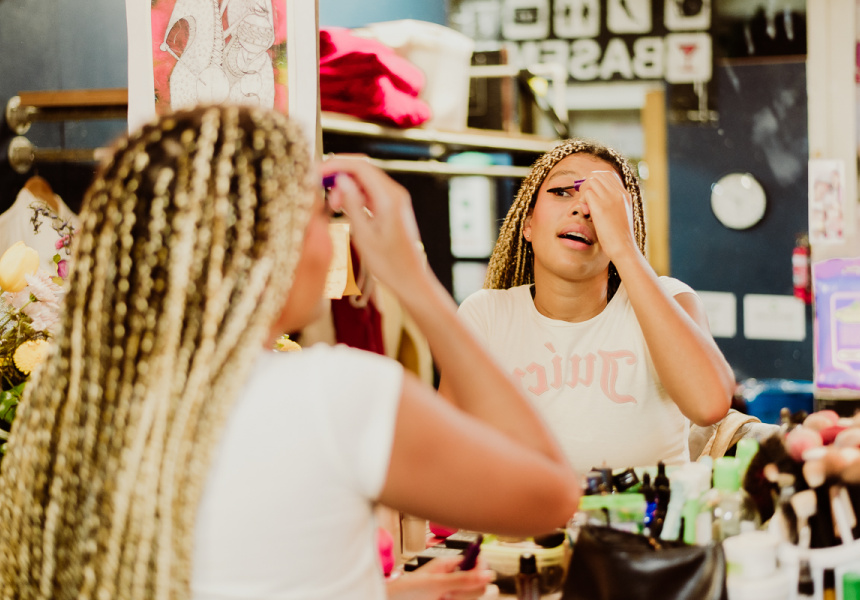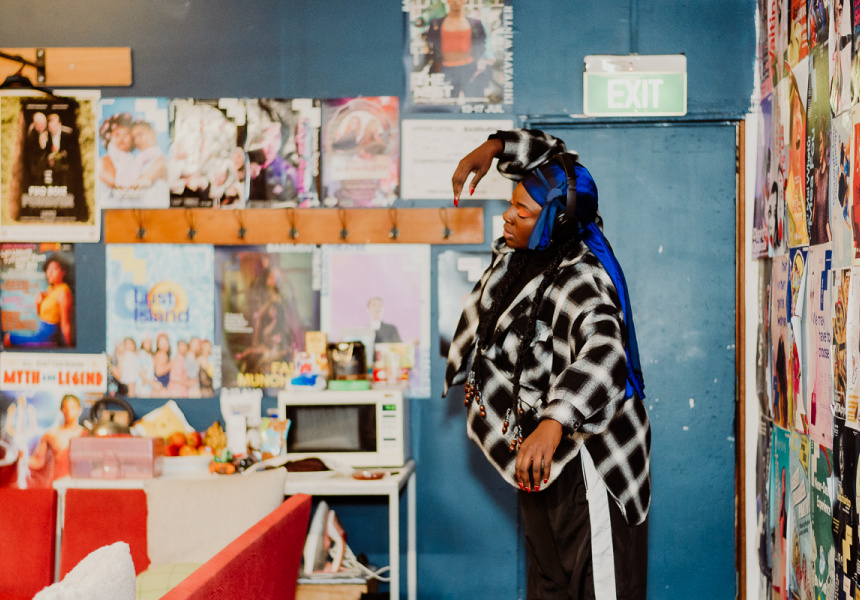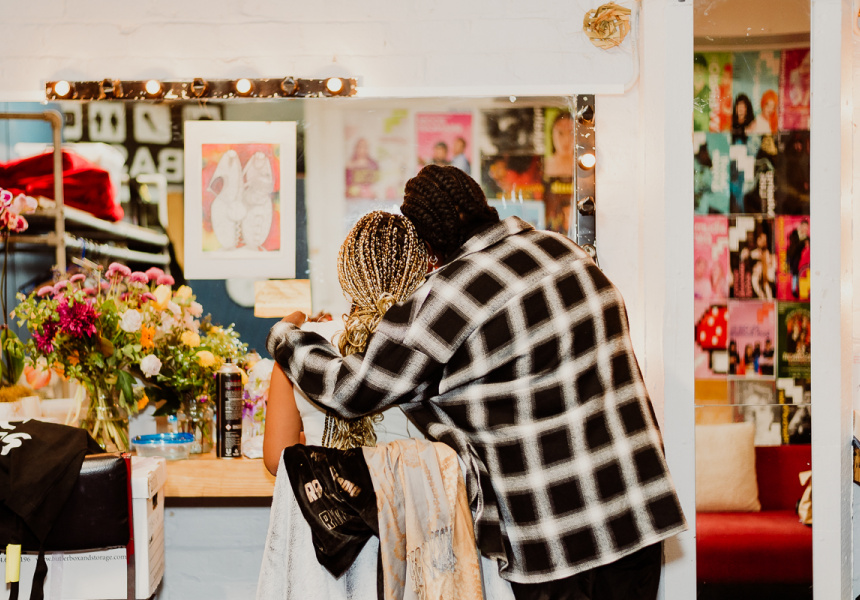Seven Methods of Killing Kylie Jenner, the British smash hit on at Auckland’s Basement Theatre until June 18, has had a sold-out run. The 2019 play, written by Jasmine Lee-Jones, staged by Silo Theatre, directed by Keagan Carr Fransch and performed by Batanai Mashingaidze and Grace Bentley-Tsibuah, is a highly contemporary two-hander about Black women from South London.
The play's two protagonists, Cleo and Kara, are close friends and have been since childhood. The plot revolves around periods when the two characters’ identities have either harmonised or clashed, and in the process explores queerness, cultural appropriation and social activism in the age of social media.
Punctuating the play are all the different ways “self-made” billionaire, Kylie Jenner, might happen to die. The show begins with Cleo explaining that Jenner, who was born into wealth and privilege, is in fact far from self-made and has made her billions by appropriating Black culture and commodifying Black women.
Never miss a moment. Make sure you're subscribed to our newsletter today.
SUBSCRIBE NOWWriter Lee-Jones, who was only 21 when the play was performed at the prestigious Royal Court in London, won the award for Most Promising Playwright at the 2019 Evening Standard Theatre Awards. In her acceptance speech, she explained that the play happens “half on the internet, half in real life”. In the local production, Mashingaidze and Bentley-Tsibuah surge in and out of the cyber world with dexterity. They are talented and seasoned performers, and it is up to the audience to keep up.
In her 2019 acceptance speech, Lee-Jones also said that theatre should be dangerous. Bentley-Tsibuah, who plays Kara, agrees. “As an actor, when you hear that, you have more freedom. Especially being a Black woman, you have more freedom to be bolder,” she says. “Because, in a sense, you’re always minimising yourself, you’re adjusting to your environment, and when I heard [Jasmine Lee-Jones say] that, I thought ‘fuck it. I’m going to move the way I want to move’.”
The play also prompts the audience to consider how the subject matter affects them. "If you don’t analyse how you walk through the world, then you’ve been a passive audience member – that’s dangerous as well,” adds Mashingaidze, who plays Cleo.
The chance to take part in an internationally acclaimed piece of contemporary theatre is something special, and in this case, it's one that honestly reflects the actors’ own experiences. This called for a change to the way Bentley-Tsibuah and Mashingaidze prepare for each show.
“Usually, I do like a standard preparation – vocal, physical, some sort of grounding. But in shows about Black people or Africans [such as] my solo” – Bentley-Tsibuah is referring to her highly successful 2019 solo show Woman of Citrus – “I think I had a very similar way of warming up as with this show. I have meditated every day before the show, whether it’s at home, because I just need that.”
Mashingaidze’s preparation starts at home as well. “Before I head into the theatre, I do a vocal steam and I always lie on [my] shakti mat. I’m just feeling like my body and my soul are being used in the show, it’s aching each and every day. I also do meditation when I come into the space. For me, it’s really important that I listen to very particular music before I go on stage – mostly artists that fuel me as Batanai.”
One of the artists that Mashingaidze uses as a touchstone is Nina Simone. “Nina is an icon for me in terms of Black experience,” she says. “The minute I saw Nina I was like, ‘this is the first person where I’ve seen myself reflected’. The dark skin, the big features – I consider this beautiful, so I like to channel her [music] into my warm-up.”
To perform this highly physical and demanding piece each night, Mashingaidze says she likes to “dance, to just move my body, heaps of drumbeats. Gracie sees me doing my big facials. This type of scale in my body is what the show is demanding and, actually, I need to be okay and joyous in it, for myself, before I share that with an audience.”
For both actors, the play has been illuminating on a personal and professional level, especially in the similarities – in experience and feeling – that exist between themselves and their characters. The show has also amplified the importance of large theatres supporting the voices of young Black writers.
“For me, in my Black circle of friends, I’m the only dark-skinned person of colour," says Mashingaidze. "We need to have conversations about this as well – we can’t keep mashing all of our experiences together.” She adds that the show “actually reminds us to have these conversations, because we feel it all the time”.
For Bentley-Tsibuah, there's been a sense of liberation in performing the role of Kara, and her relationship to the character has meant that settling back into herself post-show has been taking longer than usual.
“When you’re dealing with this content, you feel people feel it. And it’s the closest to myself I’ve ever played. I can usually go home and wash it off, but this show speaks directly to Grace.”
For more great content, follow Broadsheet NZ on Facebook and Instagram.



